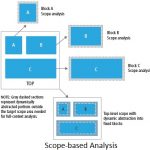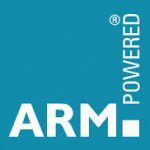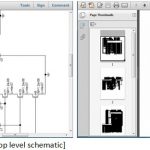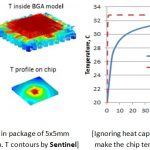At the recent DVcon there was a keen focus on design verification and validation. Much of the attention is on Logic/circuit design verification, UVM, and IP verification. At the system level functional verification has improved to comprehend complex hardware and software interaction using Virtual Platforms/SystemC and Transaction… Read More
Electronic Design Automation
Signoff Accurate Timing Analysis at Improved Run-time & Capacity
The semiconductor design sizes, these days, can easily be of the order of several hundred millions of cells, adding into the complexity of verification. Amid ever growing design sizes, it’s a must that the timing verification is done accurately. Normally Static Timing Analysis (STA) is done to check whether all clocks and signals… Read More
Does Processor IP still get the Lion’s share in 2013?
I think that the answer is pretty obvious, but the interesting point is to figure out which processor type, and which part of revenues, up-front license or royalties? One of my customers, let’s call him Mr. X, ask me to clarify this point. Mr. X has bought the excellent report from Gartner “Market Share: Semiconductor Design Intellectual… Read More
Customization can add extraordinary power to your tool
In EDA arena we often find companies providing customization platforms along with the tools they offer to their customers. I admire such companies because they equip the end users of a tool to extend its functionality as they like according to their environment, thus increasing the designer productivity significantly. And I’m… Read More
Will IoT Drive the Next Semiconductor Revolution?
To further my quest to comprehend the latest trends in the semiconductor industry continues, I spent the morning with SEMI at the “The Silicon Valley Breakfast Forum: Internet of Things (IoT) – Driving the Microelectronics Revolution” seminar. I’m a big fan of the breakfast seminar concept. I’m up early anyway and it is … Read More
Show Me How To Get Better DRC and LVS Results For My SoC Design
Most IC engineers learn best by hands-on experience when another more experienced person can show us what to do. If you cannot find that experienced person, then the next best thing is a video from an expert. I was surprised to find out that video was so important today that the #2 most viewed web site on the Internet was www.youtube.com… Read More
Fast & Accurate Thermal Analysis of 3D-ICs
As Moore’s law started saturating on a single semiconductor die, the semiconductor community came up with the approach of growing vertically by stacking dies one above other in a 3D-IC arrangement. However, a major concern with a 3D-IC is that the heat generated by each die can get trapped in the stack, and hence it’s extremely important… Read More
A Brief History of Functional Verification
Usually these brief history pieces are totally written by the SemiWiki blogger whose name is at the top. Often me since that was how I prototyped book chapters (buy). Well, OK, I did actually write this but it is completely cribbed from a presentation earlier this week by Wally Rhines who gave a sort of keynote at the announcement of… Read More
Expert Constraint Management Leads to Productivity & Faster Convergence
The SoC designs of today are much more complex than ever in terms of number of clocks, IPs, levels of hierarchies, several modes of operations, different types of validations and checks for growing number of constraints at various stages in the design flow. As a semiconductor design evolves through several stages from RTL to layout,… Read More
U2U: Things You Might Not Know About TSMC
At Mentor’s U2U this afternoon I attended a presentation on TSMC’s use of Calibre PERC (it is a programmable electrical rule checker) for qualification of IP in TSMC’s IP9000 program. I’ve written about this before here. Basically IP providers at N20SOC, N16FF, and below are required to use PERC to guarantee… Read More








TSMC vs Intel Foundry vs Samsung Foundry 2026